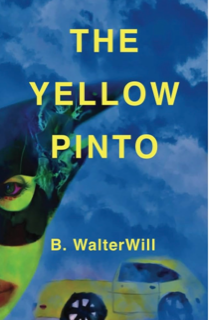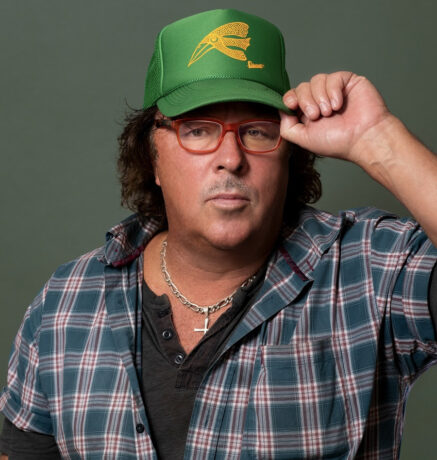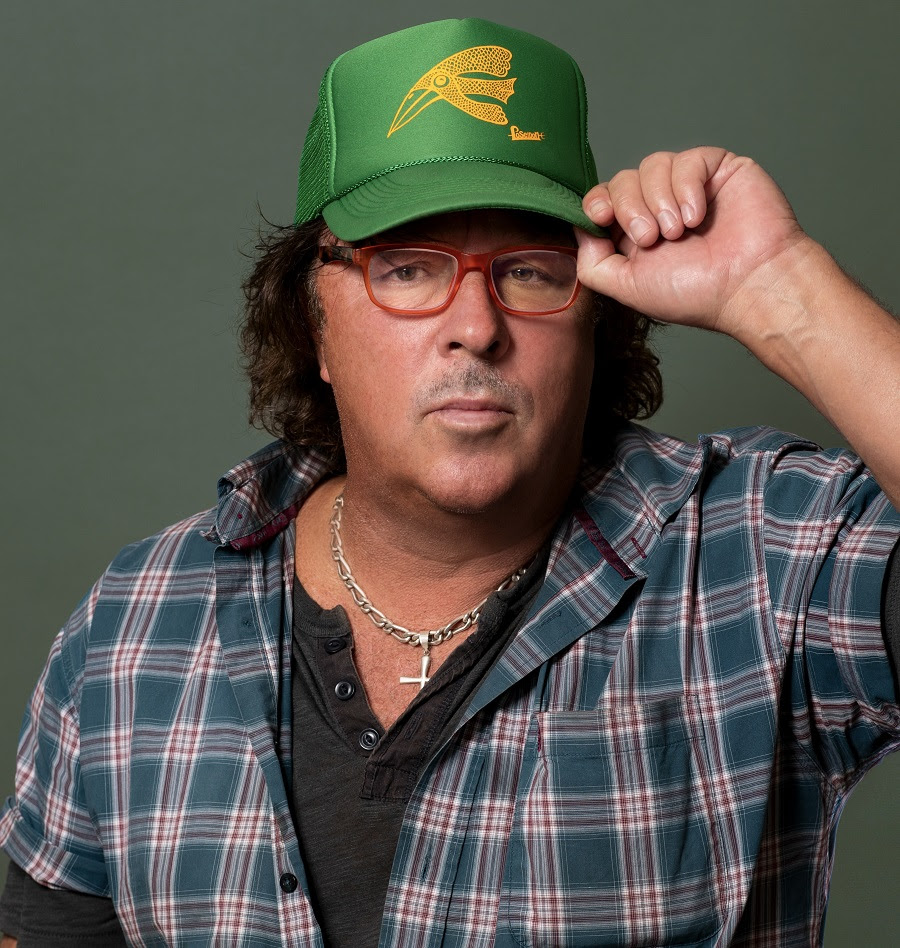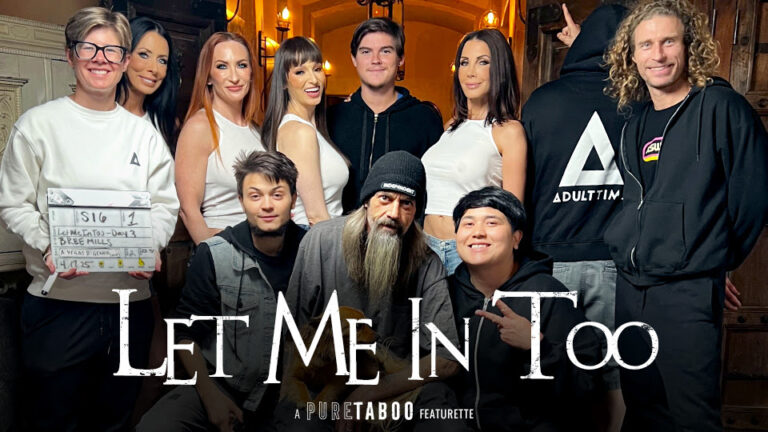
Profolic Author B. WalterWill recently sat down to discuss his new book “The Yellow Pinto”. The book has been generating quite a buzz and it’s not hard to see why.
The book takes you on a wild journey thru his life, the good, the bad and the downright bizarre, history is a must read.
- WalterWill has a history of spending pockets of time in the Los Angeles area. He frequents a variety of spots and pleasures and is open to new discoveries. When he is not in LA, he enjoys traveling (both domestically and internationally) and tends to keep his calendar quite active. B. WalterWill considers himself a Generalist. The Yellow Pintois his first novel.

The Yellow Pinto is available for purchase via a variety of platforms such as Walmart, Amazon.com, Kobo.com, Magers & Quinn, Google Books and Bookshop.org and TheYellowPinto.com, and for wholesale through Ingram (ISBN # 979-8-9886026-3).
For Retailers interested in Wholesale, please inquire at info@theyellowpinto.com.
For Book Clubs interested in a bulk order, please inquire at read@theyellowpinto.com
Socials:
Interview: Sherman Wayze
Editor: Gavyn Glass
Photos courtesy of B. WalterWill
Sherman Wayze: When did you get the idea for the book? When did the process start?
- Walter: The process started right about the middle of COVID. We would go to several places, and people would be captivated by my stories. It was my girlfriend’s idea at the time to tell the stories like I was telling to the people that I talked to.
Sherman Wayze: Do you do the Post-it thing where you put up ideas on the wall, and then you start working there?
- Walter: I would say that every day, I would write down something that I thought would be a little bit inspiring or I was inspired by.
Sherman Wayze: You mentioned a story that would inspire people. What was something you thought would inspire people?
- Walter: The book deals very strongly with my relationship with my father, okay, and my father introduced me to gambling, and I think people overlook the severity of the disease of gambling because it’s so prevalent everywhere and it’s so celebrated. Everybody’s beautiful, and everybody’s winning, but it doesn’t show you the side of the reality that 99% of those people lose money very quickly. It never shows that part of it.
Sherman Wayze: Is there an abbreviated version of how your father started you into gambling?
- Walter: I was about 16 years old and I won about $9,000, and I bought my first car with that. And the story takes off from there, all the journeys, you know, how I would go into different towns with different girls and tell them that, you know, I’m going out for a while, but I am I would be going to the casino to put bets in.
Sherman Wayze: For you gambling, was it the thrill that you could beat the system?
- Walter: I’m sure that you’ve heard that people Beat the system like those professional card players. You hear that there are professional sports handicappers, right? They beat the system supposedly maybe one-tenth of a thousandth of a percent beat the system
Sherman Wayze: What is the craziest bet you ever had that you thought like no one’s going to take this but then it paid off?
- Walter: Yeah, I bet on a horse that was 40 to one morning line and a pig six. I singled him. I mean, no one else had him. It was a very muddy, muddy, rainy day. Nobody had the horse. Everybody laughed at me for picking the horse. And I was the only ticket that day, and I won almost $200,000. The horse won by about 31 links in the mud. He won by so many links. It was like the length of the grandstand. He was like, it was. I was laughing when it happened. So yeah, there are a lot of instances.
Sherman Wayze: That’s an unbelievable return. In that situation, does that motivate you to want to gamble more?
- Walter: You would have thought that I would take in all the girls and spend the weekend in Mexico for four or five days and not thought about it. I had a great time that night, but the very next day, I left the girls behind, and I was back at the racetrack. It’s very, very addicting.
Sherman Wayze: Do you have a bigger addiction to sex or a bigger addiction to gambling?
- Walter: I love them both. And I love wining and dining, too. I love going out to dinner, eating, having wine and beer, and having good times. And I love watching live music. I love all of it. I mean, I love the pleasures of life. I don’t know why we’re here if we won’t enjoy it.
Sherman Wayze: Did the drug addictions happen before the sex or the gambling?
- Walter: I think that it all kind of happened at the same time. You’re young and impressionable. You meet interesting people. People who’ve had a profound influence on my life are older men, you know, that were probably 30 or 40 years older than me, that would take me aside and, you know, say, hey, you know, B. Walter, you’re not doing things the right way.
Sherman Wayze: Of the three addictions, was there an event or something that happened that got you to stop and maybe opened up your eyes and said, maybe I need to slow down or something?
- Walter: Losing my girlfriend and losing deals for writing screenplays and really messing up a film that that I was a part of was a major wake-up call and when you go and when you run out of sources to make money and you’re dead broke and you’re you know you’re sleeping on the floor somewhere it’s about time to get real and and and and take stock of yourself.
Sherman Wayze: Had that happened before you wrote the book or during the book?
- Walter: Before I wrote. Yeah, and it happened. I had to do something to make myself real again. Like I was living, I’ve gotten some advances for some scripts. I always made money gambling. I was getting some residuals on a project that I did, and it started to run dry. I was gambling them away, and I went and got myself a job as a busboy. I just wanted to do something real, and that job helped me, more than anything, get back to reality and what’s important in life. I’m glad I did it.
Sherman Wayze: Other than gambling with your father, did you have a good relationship with him?
- Walter: Great relationship. I mean, you know, I grew up, I was a, you know, I was a way above average baseball player. I was really good in baseball. And, you know, my dad taught me how to play baseball. We… He was a great father. I mean, he coached me and my brother’s little league teams. He always showed up for events.
Sherman Wayze: Did he ever see you stumbling with the gambling addiction? Did he ever try to get you to stop?
- Walter: All the time. It’s funny, and he did it all the time. He said that you need to stop.
Sherman Wayze: In high school, were you a popular person? Were you a loner? Were you a geek? Were you a nerd?
- Walter: I hung out with the punk and rock and roll kids. I was popular because I was good at sports, but I was kind of more of a nerd. I would hang out with the punkers more than I would with the jocks.
Sherman Wayze: In grade school or high school, you bullied a lot?
- Walter: I got bullied quite a bit. And then my dad taught me how to fight. After I got bullied and learned how to fight, I beat up two kids at the same time, and I didn’t get bullied anymore. And that was the end of it. So I pretty much didn’t really like fighting very much. I’d rather just talk to someone or avoid them if they have a problem with me.
Sherman Wayze: In college, did you have a baseball scholarship?
- Walter: Yes, I did. Yeah, I had a scholarship in college on two different occasions, yeah.
Sherman Wayze: How far did you go with baseball?
- Walter: College is where it ended. I busted my knee twice in college, and then that was it for me.
Sherman Wayze: So once you realize you won’t be playing baseball, what do you do?
- Walter: That’s when I thought that I would make a living at gambling.
Sherman Wayze: Were there any stories chapters in he book that you felt might be too personal but were important to the stories that you included them
- Walter: The whole book is very personal. So I have to, you know, everything’s told fictionally, you know because it just needs to be. But I will say that, when, as a family, when we lost the house, and I was in high school, and I was, you know, 16 years old, we were going to move into a condo. And the lady who was the landlord of the condo saw three boys and a little girl getting out of out of the moving van. She didn’t rent it to us. We had to live in a hotel right off the freeway with two beds for about two weeks.
Sherman Wayze: And from the original concept to the finished book, how much of that concept is in that book?
- Walter: I’d say a hundred percent of it is it’s that’s what the books about it’s the book is a journey of life stories that you know you fall down you make mistakes somebody, but you pick yourself up again, and you continue with the same habits or addictions and hopefully you know, you don’t lose everybody in the process. And if you’ve lost them, you try to keep them in your life still.
Sherman Wayze: But there were no editors, lawyers, anybody who said, no, this isn’t gonna work. No, this is too much.
- Walter: I had an editor. The editor of my books was fabulous. She was wonderful. She told me some stuff to keep and some stuff to throw out. She did a tremendous job helping me edit the books.
Sherman Wayze: I lived in Los Angeles for 38 years, and I was curious as to what your version of the underbelly of Los Angeles is.
- Walter: The underbelly of Los Angeles, I would say the after-hour clubs that had naked girls serving cocaine at two o’clock in the morning on trays, that would be the underbelly of Los Angeles. I would say the casinos and racetracks are the underbelly of Los Angeles. I would say that Cahuenga Avenue has certain bars there, I won’t name them, but certain bars there, a lot of underbelly happened there. A lot of illegal things. Echo Park would be, especially 20 years ago, it’s cleaned up a lot now, but Echo Park would have put up in the underbelly.
Sherman Wayze: Has that changed with this generation with social media and all? it doesn’t seem like people you wanna go out with anymore.
- Walter: Yeah, I think it has changed a lot. There was a spot in Echo Park that I used to love. And it’s not the same spot anymore. And I remember being there late at night, there were basically waitresses that were very, very big-breasted waitresses. They would serve pedants in this bar. I swear to God, one night, they must’ve had a cock fight in the back. In the back, there were always drugs being dealt there. And then I went in, you know, a couple of years ago, and they changed it to a beer-tasting bar. It was sterile. And I feel like if you want to talk about Los Angeles, I feel Los Angeles is really becoming too gentrified, too sterile.
Sherman Wayze: Is that underbelly, though, part of the folklore of Los Angeles?
- Walter: Yeah, I mean, I mean, you know. Why do you think movie stars hang out here? Why do you think they can go to places that you and I might not even know about? And if we do know about them, you probably won’t tell me about them and I probably wouldn’t tell you unless we were hanging out together one night and I said, let’s go here. There are a lot of unmarked bars here. There are a lot of places that look like a slum on the outside, and you go inside, and it’s a palace. I think that what attracts people to Los Angeles is the underbelly.
Sherman Wayze: What do you hope people take away from the book?
- Walter: I hope that they know that they can make mistakes. I hope that if they are gambling or if they have an addiction, there is help out there. And I really do hope that, especially in regards to gambling, I want people to know that it’s fun to gamble, but it’s worse than heroin. It is a very potent addiction and you can lose everything very fast because of it. So be very careful of joining the Fan Duels, the parlay clubs, the lottery games, all of it. You can lose everything very, very quickly.
Sherman Wayze: You sell the rights to this to turn the book into a movie. Who do you want to play you?
- Walter: Oh God. I’d say believe it or not, the kid that was in Shameless. He’s in The Bear now, Jeremy Allen White.
Sherman Wayze: PG-rated or R-rated?
- Walter: It would have to be R-rated. There’s no way that this would ever be PG. It could probably be NC-17 if that still even exists.
Sherman Wayze: And do you think movies now have been changed the way they’re being made and produced?
- Walter: I’ll say something that you probably won’t believe, but I thought Barbie was spectacular. I thought Elvis was well done. When you see a movie that’s that big, a big budget, that’s great to see, but the independent films anymore, they’re not getting made. And the ones that are getting made are pretty blah to me.
Sherman Wayze: Where can people get the book?
- Walter: It’s everywhere. It’s on Amazon. It’s at Barnes and Noble. Most bookstores have it. If they don’t have it, you can order it. It’s at Walmart. It’s, I mean, it’s everywhere.
Sherman Wayze: You meet a younger version of yourself. Do you give them any advice?
- Walter: I do kind of wish I finished law school. I was going to say earlier that I loved law school. I didn’t like it, I loved it. And I did very well at it. And I wish I didn’t drop out, but I did. I made a bunch of money gambling when I did it. And I had everything. I called the school, and I called my professors. I said I’m going to come back. You know, and you know, two weeks became four weeks, four weeks became eight weeks, eight weeks became a summer, and I just never went back.
Sherman Wayze: Did you want to do criminal law? What type of law did you want to do?
- Walter: I was, you know, I was pretty, what’s the word? I’m pretty liberal, so I wanted to be like a civil rights attorney, you know, like I would have liked to fight for people’s rights. and you know or or or injustices or people that were you know truly marginalized or prejudiced against that I was really or harmed in some type of way by you know like a chemical or something that I would have been very interested in that I’ve been I don’t I didn’t really want to be a personal injury lawyer but uh but like a civil rights attorney would have been kind of cool I thought yeah.
Sherman Wayze: You’ve lived the opposite of the nine-to-five life.
- Walter: Yes, I have.
Sherman Wayze: Would you recommend that to other people?
- Walter: Yeah, I would. I definitely would. Unless your job, I mean, if you’re a doctor, you gotta work doctor’s hours. There’s nothing you can do about that. But yeah, I definitely would.
The Yellow Pinto is available for purchase via a variety of platforms such as Walmart, Amazon.com, Kobo.com, Magers & Quinn, Google Books and Bookshop.org and TheYellowPinto.com, and for wholesale through Ingram (ISBN # 979-8-9886026-3).
For Retailers interested in Wholesale, please inquire at info@theyellowpinto.com.
For Book Clubs interested in a bulk order, please inquire at read@theyellowpinto.com
Socials:
Story: Ralph Greco, Jr.
Ralph Greco, Jr. is the devilishly clever nom de plume of professional writer/musician Ralph Greco who lives in the wilds of suburban New Jersey. He is also a podcast co-host, but as everyone has a podcast these days, this fact is of very little consequence.
Ralph can be reached by writing ralphiedawriter@gmail.com
















